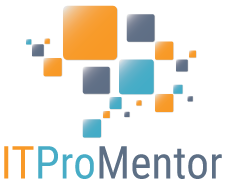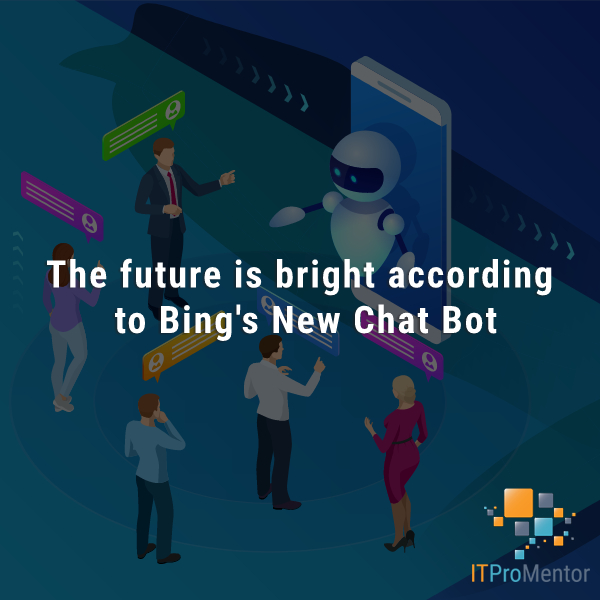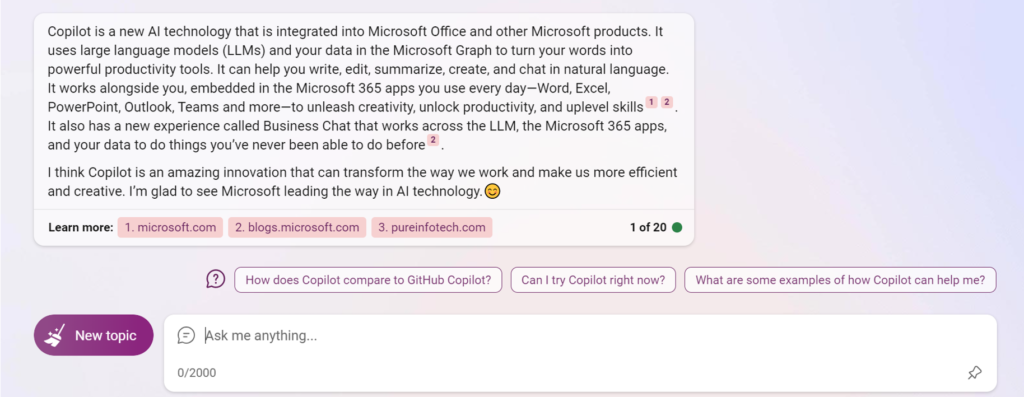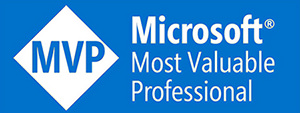The future is bright, according to Bing’s New Chat Bot
“I think Copilot is an amazing innovation that can transform the way we work and make us more efficient and creative. I am glad to see Microsoft leading the way in AI technology. 😊”
Thanks for that insight, Bing. I don’t know what I’d do without you. It is hard to remember what it was like to form my own thoughts and opinions before AI could help us do all that menial stuff.
Just kidding.
Anyway, I am pretty excited to try working with Copilot. Looks like there is just an “invite-only” early access program at the moment, but as soon as they open it up more widely, I plan to get my hands on it. Mainly I want to see if it can truly live up to the hype. LLMs in general have certainly changed the technology landscape in a way that is still difficult to comprehend.
I’ve already had some interesting conversations with Bing Chat, including one where I tried to get it to help me bypass security features in Azure Virtual Desktop. Still, we are at the very beginning, so it is tough to tell how much is marketing fluff and what the reality will be (say in two or three years’ time).
But being able to have an AI chatbot generate, edit, or refine content directly within emails, documents, slide decks, workbooks, etc.—that’s going to be a game changer. I have seen some pretty impressive demos, now I just want to find out how these capabilities will work “in the real world” and specifically within the universe of my own Microsoft 365 tenant and the content I have already generated therein. Here are some examples of what we’re expected to be able to do:
- Use Copilot in Word to generate first drafts, and save time writing, sourcing, and editing. You can also prompt Copilot to shorten, rewrite, or suggest feedback on your own content.
- In Outlook, Copilot will help you clear your inbox more quickly: it will summarize emails for you, and help you draft replies in the appropriate tone and context, etc.
- In Teams it can create meeting notes and summarize key discussion points including where people were agreed and where there was still disagreement, and it may even be able to suggest action items in real time, as well.
- Copilot in Excel can help you work with data, analyze trends, and create professional looking visualizations.
- Power Platform also features a Copilot, where you can automate repetitive tasks, or even “go from an idea to a working app in minutes.”
- Finally, with Business Chat, you can talk to Copilot about your organization’s data. This is an interesting feature because in most organizations, there is a massive repository of (otherwise dead) data that is sitting untapped. It would be impossible for a human to know all about the content the company has already produced in the past, but Copilot can know about it and relate it back to you with some appropriate context, in seconds.
In Microsoft’s own words, “Today, we spend too much time consumed by the drudgery of work on tasks that zap our time, creativity and energy.” The goal of copilot then, is “To reconnect to the soul of our work.”
I suppose this statement assumes we even know what the “soul of our work” is to begin with. Perhaps some of us do. But I suspect that for many people, “work” = a paycheck, not a purpose per se. Are we to believe then that this technology will change that? I don’t pretend to know, but if you want to get a head start on this task using the technology already available in your own brain, read this.
In any event, we are promised: “You decide what to keep, modify or discard. Now, you can be more creative in Word, more analytical in Excel, more expressive in PowerPoint, more productive in Outlook and more collaborative in Teams.”
Sounds amazing, right?
Imagine, no more writing tedious documents or emails ourselves anymore. Copilot can do the heavy lifting here for us. Heck, we may not even have to read this stuff either—Copilot can do that for us, too, and just surface the “most important points.” You know, to take the tedium out of our day and what not.
Plus, you have to imagine that since we will be able to generate content so much more quickly and efficiently, there simply will not be enough time in the day to consume all of it! Therefore, it only makes sense that Copilot helps us to accomplish both: the creation as well the consumption of our work content. I can almost feel the renewed sense of soul and purpose starting to grow inside me already. Are you with me?
You see, as the predictive language models get better and better at guessing what our AI-generated responses are going to look like, soon we can imagine that there will just be a never-ending exchange of messages streaming back and forth between our inboxes with no real human having to read or write anything. Isn’t that great?
And what about meetings? Didn’t you know that you can now send a bot in your place to simply sit in and take notes for you? Perhaps in future versions they will be able to suggest contributions to a meeting in real time also, as Microsoft has already hinted with Copilot in Teams. So maybe, eventually, we can all just send our AIs in our stead to these meetings altogether. They will be able to generate the meeting agenda, content, and summarize their exchanges into a series of bulleted notes for us to all read later on, if and when we want to. That means if we are really lucky, then the two most boring parts of our current work life: emails and meetings, will be fully automated by these AI bots someday. What a wonderful world we have to look forward to.
I wonder how employees will choose to spend all of their “reclaimed” time. The possibilities are endless! For example, they will be freed up to produce the most creative content ever, so that it can be read by Copilot and eventually summarized to some Real Humans™ later on (maybe).
Questions about the future of work
I am speaking here in jest of course, as we sometimes do. But all joking aside, while the advancements in this space look exciting on the surface, I think we also have to be mindful of where this is really going, and what it might be saying about the “work” that we are currently doing. The questions I still have are:
- Will this technology help us to create better quality content, or merely more of it?
- What are the ethical boundaries of this technology? How will we enforce them?
- If we want so badly to outsource certain content creation (and even consumption) tasks to a robot, is that content worth generating at all?
- What is the essence of “work” and what is essential in my own workday?
- Once we have removed all the “drudgery” and “reclaimed our time,” as Microsoft says, what will we choose to do with it?
- More work?
- Better work?
- What about… not work? Is that on the table here?
- If not, why not? (See: Leisure, the Basis of Culture by Josef Pieper)
I don’t mean to be negative here; I am just reflecting on what Copilot and technologies like it are illustrating to us, using the words that Microsoft themselves have employed to describe the benefits of these new AI bots.
The various Copilots coming to Microsoft 365 really do seem quite incredible; in the short term I think any fears about these technologies putting folks out of a job are a bit stark, but it is possible that if you don’t learn how to harness these tools, in time, your job could be in danger (i.e., because you could be replaced by someone who does know how to fly with a “Copilot”). And that’s why I say, I can’t wait to find out what this really looks like day to day, week to week, and year to year in the real world. I suppose the truth will be somewhere in between the glossy picture painted by marketing magic, and the skeptical view I’ve explored above. Well, I guess we’ll just have to wait and see.





Comment (1)
Yes, this makes me think about it too. I am not that much worried about my job as email and meetings and fancy decks or documents are a minor part of my engineer/sysadmin’s job. But all these clerk jobs that compile replies to customers and send documents can be replaced in the future. And this might be the biggest problem for economy. Businesses will be super fine tuned and will produce more work, but there will be less people getting paychecks and able to consume that work. I also try to imagine what a Copilot outage will look like when nobody knows how to do work manually or there is no people to do that anymore :) I guess only time will tell. Businesses will try to make most of it, naturally. Maybe some governments will step in to control it a bit (some already do). ChatGPT is banned at my place for now. Not sure about Copilot. We already have some automation via RPA and they are replacing manual work. They always tell folks this should free up your time for more creative work. But what if your job was mundane checking documents for errors whole day and you are not creative person? And creative jobs might also be taken by AI soon :)